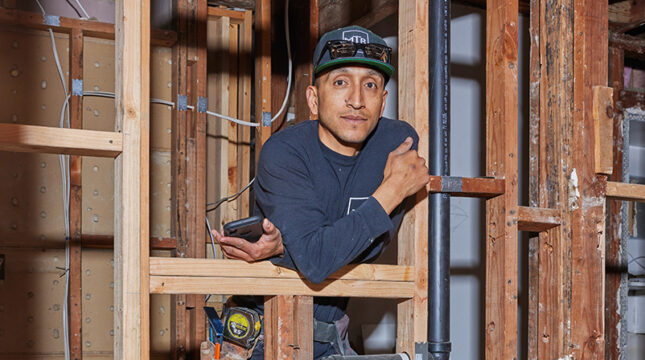Are general contractors responsible for subcontractors?
Yes, with some caveats. General contractors are typically responsible for the subcontractors they hire. They must ensure that subcontractors perform their work correctly, meet contractual obligations and adhere to safety regulations.
However, while GCs are “responsible” for and manage the work done by subcontractors, they are not considered employees. Even what constitutes an “employee” may vary by state; each state has its own criteria for determining an employee vs. a contractor.
Generally, subcontractors are self-employed, independent entities or businesses the GC hires to perform specific tasks or provide specialized services. They are usually responsible for their own employees, payroll, business insurance and taxes. Subs often work under a separate contract with the GC and maintain their own autonomy and legal status as separate entities.
What are the roles and responsibilities of general contractors?
General contractors often oversee the work of subcontractors, coordinate their activities and are held accountable for the project’s overall success and quality. Here’s what GCs are responsible for:
1. Subcontractor hiring and selection
GCs are responsible for carefully selecting subcontractors based on their qualifications, expertise and track record. This involves evaluating their experience, reputation, financial stability and ability to meet project requirements.
2. Sorting through red tape
Before the job begins, GCs will ensure that the necessary paperwork is completed. This means acquiring all building permits, keeping their general contractor licenses valid and ensuring that subcontractors have valid licenses as well.
General contractors also ensure subcontractors comply with applicable laws, regulations, permits, and building codes. They ensure that all work performed meets legal and regulatory requirements.
3. Contractual agreements
General contractors must establish clear and comprehensive contracts with subcontractors. These contracts define the scope of work, project timeline, payment terms, insurance requirements, and dispute resolution strategies to ensure both parties are aligned and protected.
4. Insurance requirements
As a general contractor, you’ll want to make sure your insurance coverages meet the required standards. Most GCs are required to carry the two types of business insurance:
- General liability. Contractors are often required to have general liability insurance to get professional licenses or work on certain jobs. It helps cover the risk of injury to other people and property damage.
- Workers’ compensation. If you have employees, workers’ compensation is often required by law. This coverage helps insulate you from medical bills incurred through an accidental injury suffered on the job.
While subcontractors must maintain their own business insurance, GCs must verify a subcontractor’s additional insured and certificate of insurance status. A GC could be liable for a subcontractor’s negligence if they don’t have the proper coverage in place.
5. Coordination and communication
Effective communication and coordination between GCs and subbies are essential for completing projects. This involves sharing project information, schedules and updates, ensuring that subcontractors understand their roles.
6. Conflict resolution
General contractors are responsible for addressing and resolving any issues or disputes that may arise between subcontractors or between subbies and themselves. They act as mediators, finding solutions to conflicts and ensuring project continuity.
7. Documentation and record-keeping
It’s up to the GC to maintain proper documentation throughout the project. This includes subcontractor agreements, change orders, work progress reports, safety records and any other relevant project documentation to ensure transparency, accountability and legal compliance.
8. Project oversight
The GC is responsible for ensuring a project’s success and completion. To do this, a GC might conduct regular site visits, monitor progress, review work quality, and provide feedback to subcontractors to ensure project milestones are met.
9. Risk management
A GC must identify and manage potential risks associated with subcontractor work. They assess risks, develop risk mitigation strategies, and implement measures to prevent or minimize delays, quality issues, safety hazards or other potential project risks that may arise from subcontractor activities.
10. Quality control
General contractors will monitor subcontractors’ work to ensure it meets the required quality standards. GCs might also conduct regular inspections, review progress, and address any deficiencies or deviations from project specifications to maintain the overall quality of the project.
11. Safety compliance
It’s a GC’s responsibility to enforce safety regulations and promote a safe working environment. They ensure subcontractors follow proper safety protocols, provide necessary safety training, and conduct regular safety inspections to prevent accidents.
12. Managing the worksite
Among the primary responsibilities of the general contractor is overseeing the physical location while work is in progress. The GC will secure the site and ensure building materials are stored away from the elements and out of the sight of prospective thieves.
If there’s refuse on the property, GCs are usually responsible for disposing of it and providing sanitary facilities for workers to use.
13. Payment and finances
General contractors manage the financial aspects of subcontractor relationships. This includes verifying subcontractor invoices, tracking progress, and ensuring timely and accurate payment for completed work. They’re also responsible for managing project finances by working within budgetary constraints and cost control measures.
14. Client satisfaction
It all comes down to the client. General contractors are the link between subs and clients. They prioritize client satisfaction by overseeing subcontractor work to ensure it aligns with the client’s expectations and project requirements.
Common challenges for general contractors and subcontractors
One of the biggest responsibilities of general contractors is creating a mutually beneficial relationship with subcontractors. As with anything, some issues will be given higher priority than others when developing a strong bond.
Payments
Managing cash flow can be a hurdle for subcontractors. So, part of the prime contractor’s responsibility is assuring that subbies are paid on time.
This is because subcontractors often spend large sums of money before they even set foot on a job. These expenditures may entail:
- Purchasing materials needed to complete the project and
- Additional funding to pay employees once work is underway
An otherwise reliable subcontractor who has trouble meeting payroll or paying suppliers might be reluctant to accept future work.
Customer expectations
It can be difficult to keep the customer happy at times, but ultimately, they are the ones paying.
For example, consider a developer who takes on a residential project and needs 100 homes built. With similar sizes and layouts, the customer may expect each home to be built within the same time frame. However, that’s not always the case.
If retaining skilled subcontractors is difficult and delays occur, poor communication and coordination can damage the reputations of both GCs and subs, leading to financial ramifications.
Unfamiliarity
One of the prime contractor responsibilities for a subcontractor is knowing who they’ve hired and are doing business with.
Before hiring and becoming responsible for a subcontractor’s work, it’s smart to look into background information on who you’ll be working with. You’ll want to review:
- The type of jobs the subcontractor has taken on
- Their general financial condition
- Whether the company has faced continuing legal issues or lawsuits
Odd trends and patterns in jobs performed, cash flow or a history of disputes should raise a red flag when hiring subcontractors.






